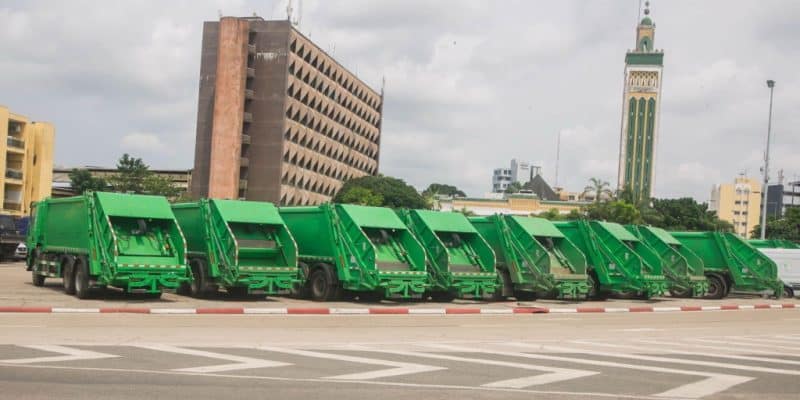In Gabon, the waste collection service will be improved in the municipalities of Oweno, Akanda, Ntoum and Libreville thanks to 46 new pieces of equipment granted to the public company Clean Africa by the Gabonese government.
The Gabonese government wants to improve the sanitation of its cities by 2023. It is within this framework that the public company Clean Africa recently received new equipment to improve waste management in Greater Libreville. The equipment consists of 10 ampiroll trucks, six tippers and 30 refuse trucks that will facilitate waste collection in the councils of Oweno, Akanda, Ntoum and Libreville, the capital.
“This equipment will improve Clean Africa’s operational capacity in order to provide a sustainable solution to the problem of insalubrity and to make the country’s cities cleaner in the new year,” said the Gabonese authorities. Despite this allocation, sanitation remains precarious in Gabon, particularly with the saturation of the Mindoubé landfill, located 6 kilometres west of Libreville. Faced with this situation, which is conducive to pollution and tropical diseases, the government of this Central African country is planning to relocate the landfill and build a waste recycling plant by 2022.
This measure is also backed by the private sector. Indeed, the Gabonese government and the German firm Bomag, which specialises in soil, asphalt and waste compaction technologies, have entered into a partnership for sustainable waste management in the first half of 2022. If concluded, the partnership should enable Bomag to supply Gabon with its range of machines already sold by a network of distributors in 150 cities around the world, including Libreville. The German company will also be responsible for the energy recovery of waste produced by the 980,000 inhabitants of Greater Libreville.
Read also-GABON: « the plastic bottle challenge » to reduce pollution
In the meantime, the municipality of Libreville implemented a regulation in October 2022 to fight against household waste pollution. This regulation stipulates that “households must imperatively pack their waste in bin bags before depositing it in bins, skips or voluntary waste collection points (PAV) every day between 6pm and 9pm”. The authorities of the Gabonese capital have also provided for sanctions for violators of this measure, including a fine ranging from 500 to 50,000 CFA francs (from 0.76 to 76.3 euros), the cleaning of the dumpster or manual labour proportional to the degree of the offence committed.
Benoit-Ivan Wansi






